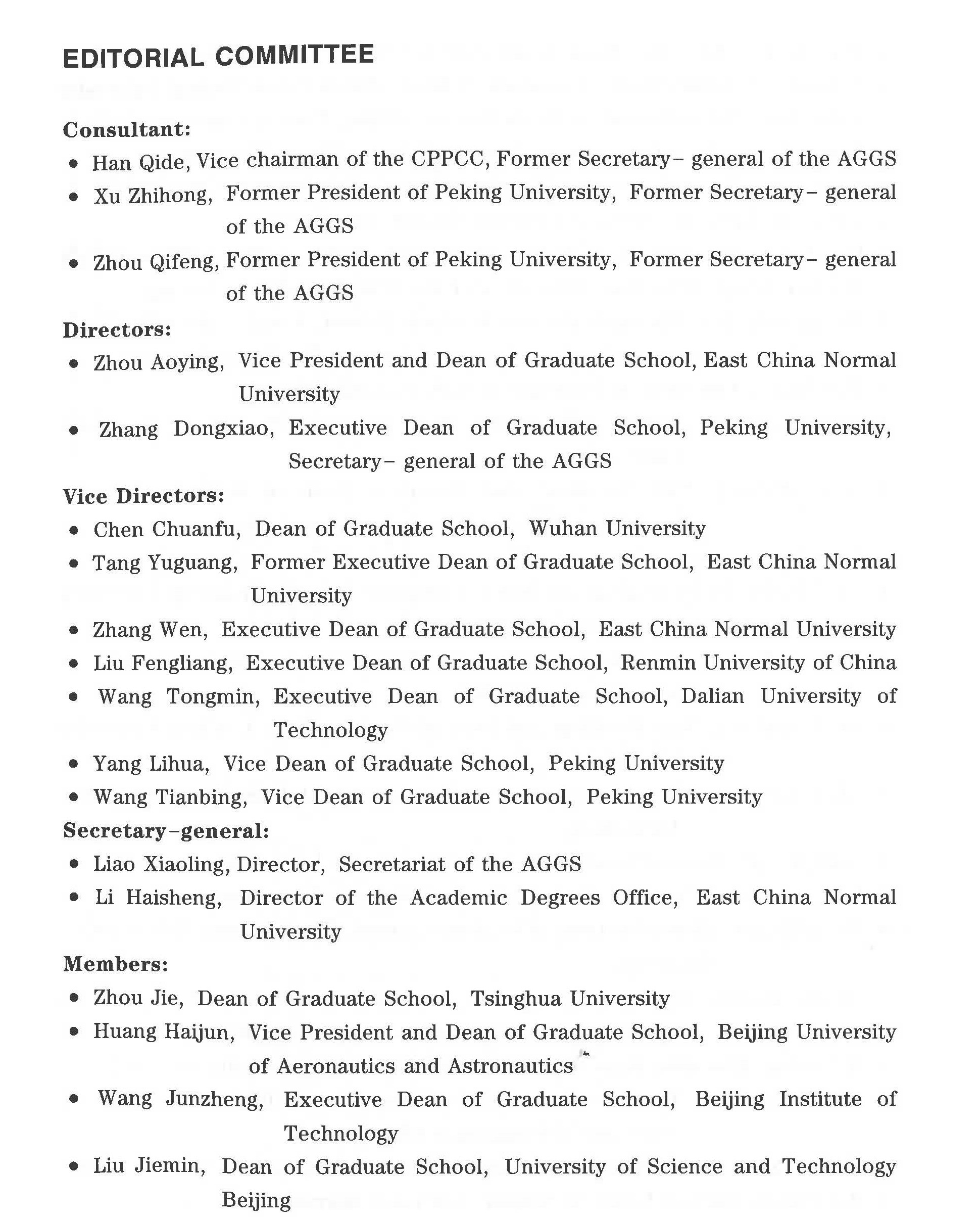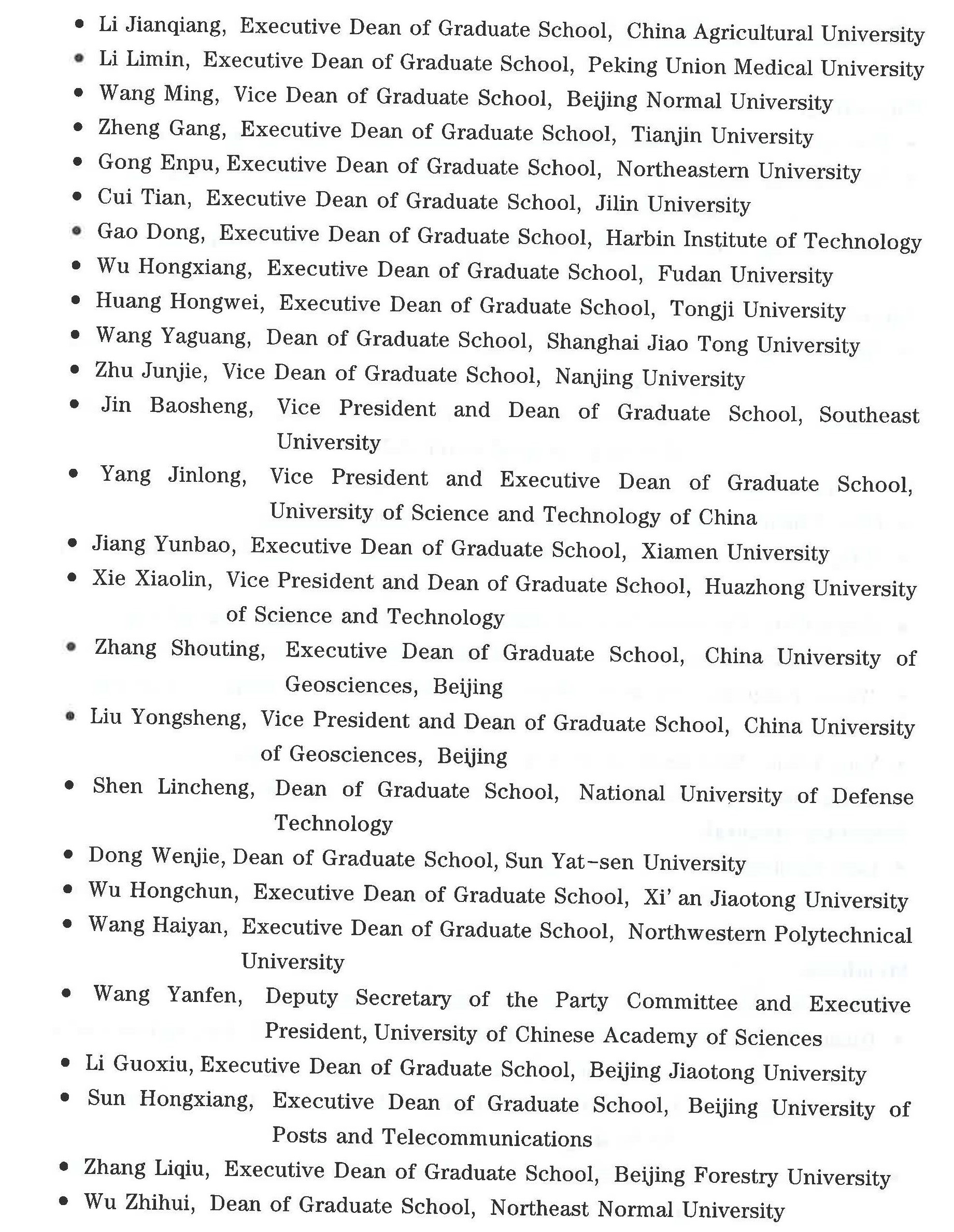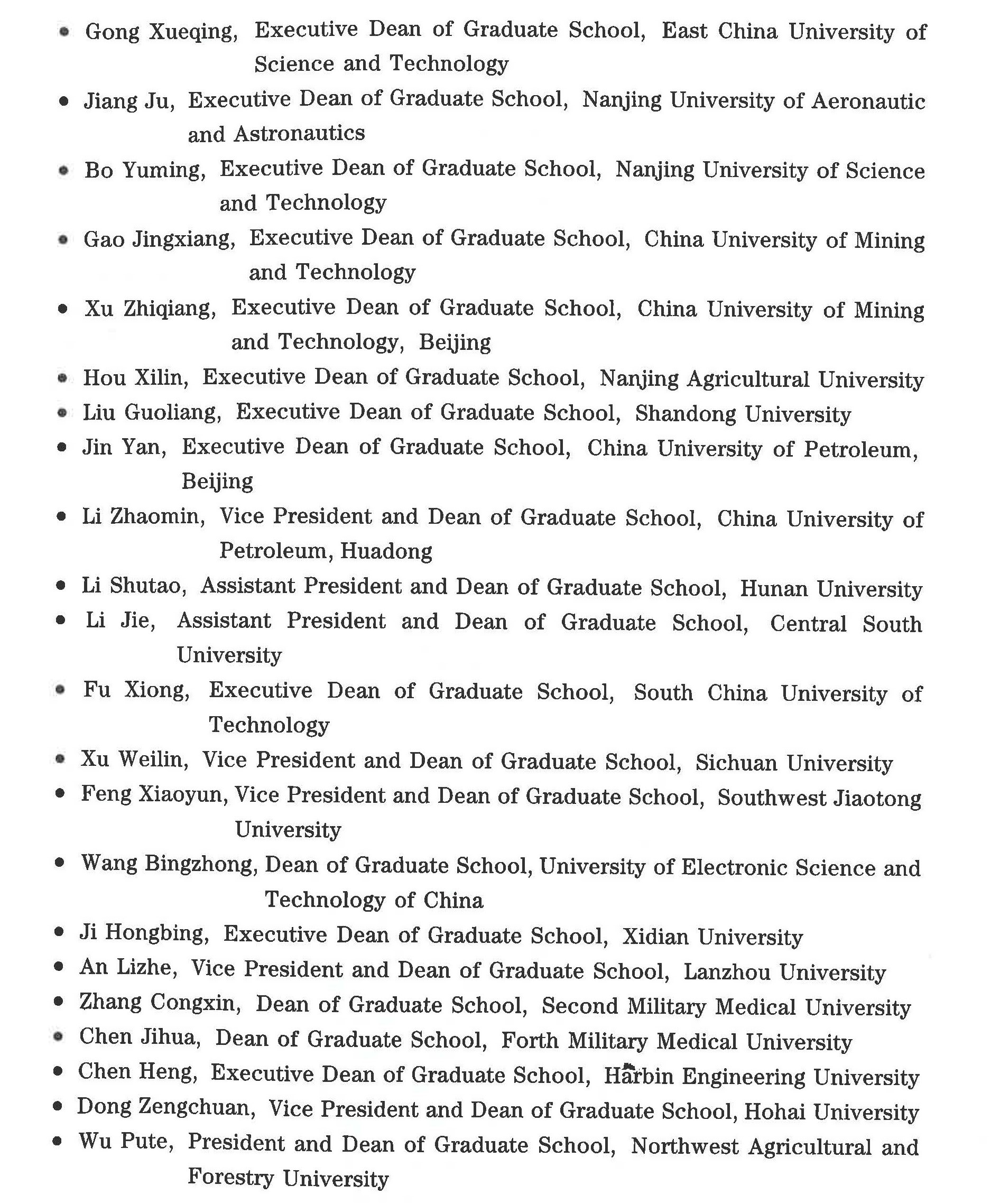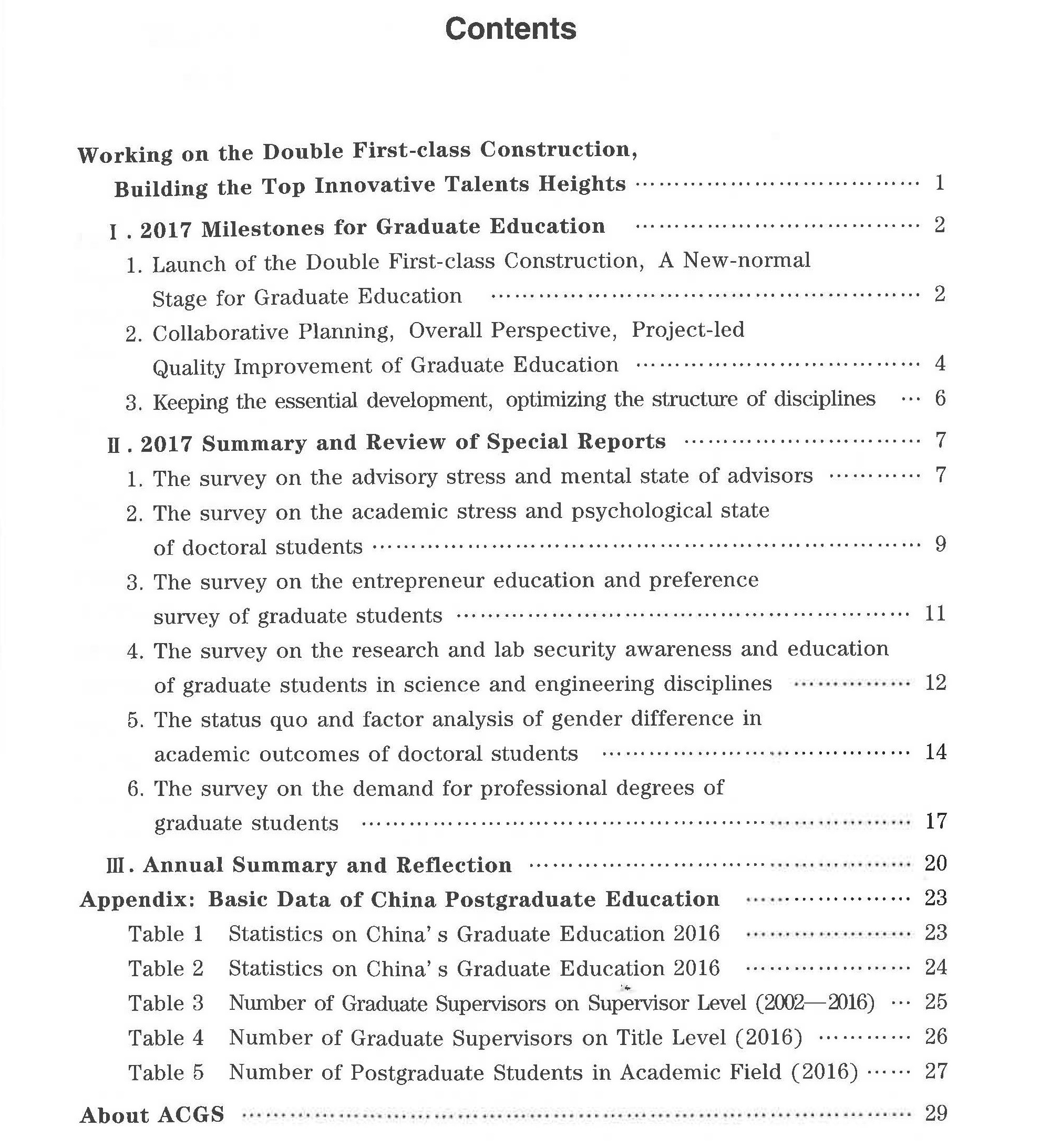

Preface
The most important milestone in 2017 is the launch of the Double First-class Construction. It has a lasting ripple effect on higher education and the society. The construction is discipline-centered, merit-based and dynamic-processed. Therefore, graduate education as a key indicator of discipline performance not only grabs a new opportunity but also confronts with tremendous pressure as well as upcoming substantial challenge. In order to maintain and highlight their strong and special disciplines, universities change their traditional mindset on pursuing the scale and the variety and fasten the speed of optimizing the internal disciplinary structure, which leads to a new scenario of China’s graduate education reform in short term. Although the reform appears a little unprepared and the pace a bit uncoordinated, many signs show that the Double First-class is a strategically meaningful move for institutional innovations, which predicts long and far-reaching impact for the future of China’s higher education in general and for graduate education in particular. It indicates that the old path of expansion is going to be replaced by a new path of essential development based on quality improvement.
One major external feature of essential development is to see if graduate education can produce a massive force of top innovative talents and to see if the discipline construction can pursue academic frontiers while serve the urgent needs of technological change driven by the social economic development of this country. Its internal requirement is to see if graduate education units can effectively build and ensure its quality by institutional innovation, optimization of disciplinary structure, interdisciplinary collaboration, resource and talent gathering, which empowers some disciplines to be globally competitive and even become the leading forces and furthermore to be capable of serving the overall national strategy. Therefore, the fundamentals of essential development are the initiatives of universities, which depend on the solid work done by grassroots for two core beliefs—innovation and quality. It is the fundamentals that guide the Committee of Association of Graduate School Deans to formulate the agenda for the annual report. The agenda is to keep the tradition and specialty of research and investigation as well as to focus on the status quo and expectations of the basic-level players. The study of professional and academic stress for both advisors and graduate students can reveal the real challenges in a institutional setting. The survey on entrepreneur preference and lab security awareness of graduate students helps understand their learning and working environment and seek the solutions for their problems.
We believe that given the Double First-class construction, the purpose for any institutional reform of graduate education is to change the former mindset with responsibility, passion and initiatives. Therefore, reform is neither the release of a new policy nor the implementation of a new regulation. Nor is the change of organizational structure. Ultimately it is to inspire human beings to reach their full potentials. We argue that the human-oriented approach, compared with the current trend of big data, is more helpful to identify the problems grounded in the real needs of advisors and students in the process of developing graduate education. The human-centered approach not only delivers timely and specific feedbacks for each and every graduate education unit, but also provides at least a perspective of reflection to the development scenario of China’s graduate education.
Secretary-General of the Association of Chinese Graduate Schools
November 30, 2018





